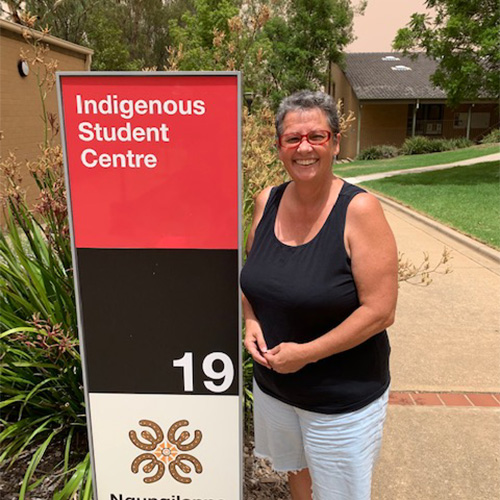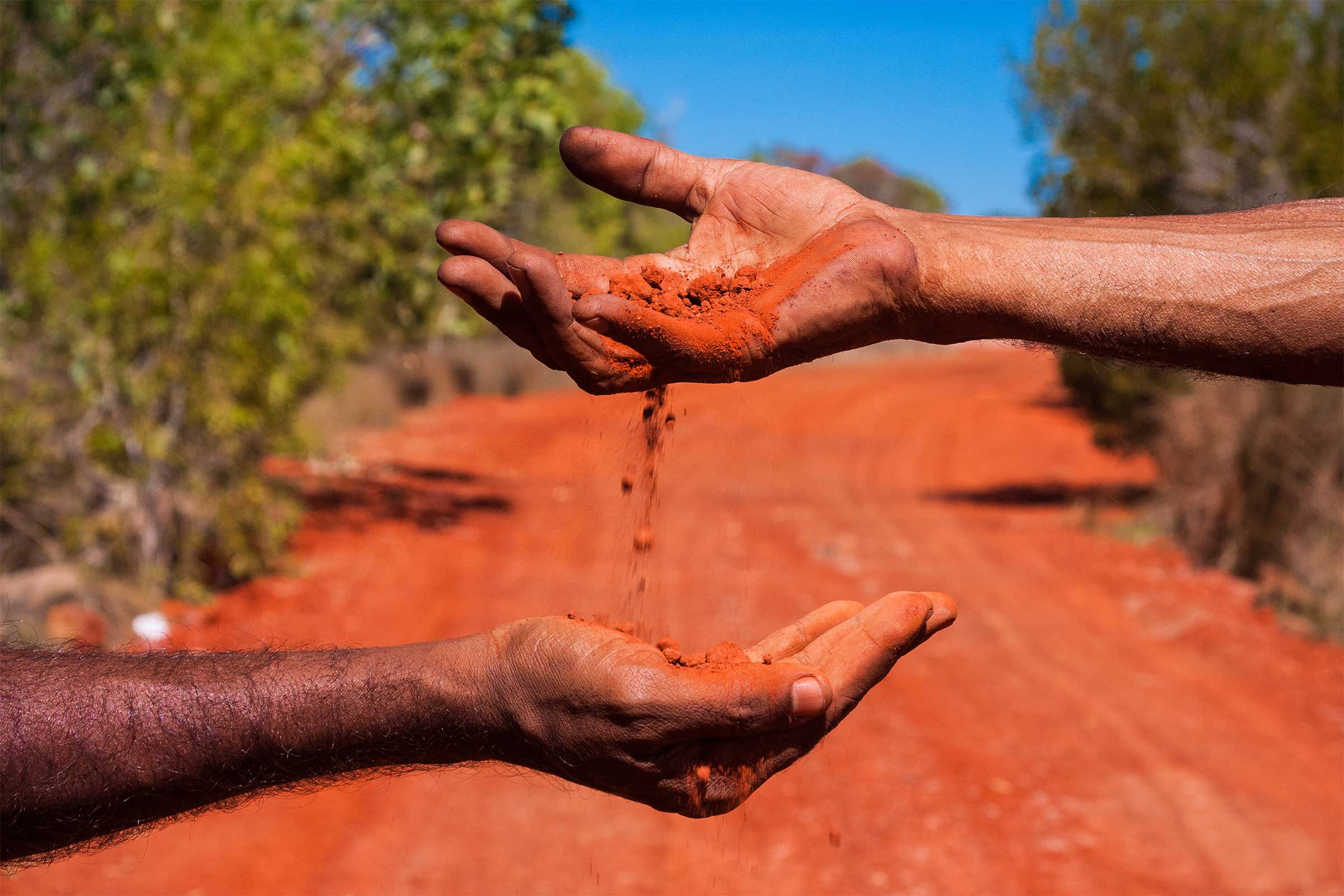
Felicity Chapman studied a Graduate Certificate in Wiradjuri Language, Culture and Heritage with Charles Sturt University. Studying the Wiradjuri culture and language is an important step on a journey that has brought her in touch with her proud First Nations heritage, which she aims to share with others in her community.
The start of Felicity’s journey
“I deem myself as one of the ‘lost ones’. I would ask my family about being Aboriginal, because I never felt I belonged where I was. I was always shut down. It caused arguments with my parents and my aunts and uncles.
“A few years ago, I started doing research on my family tree, to try and understand what was happening. I discovered that my great grandmother was Aboriginal and part of the very first stolen generation. We don’t actually know where she came from. My grandfather was born on the Queensland-New South Wales border, and lots of his siblings were born in other towns.
“He turned his back on his family and his upbringing to keep his family safe. He didn’t want his kids to be taken from him, so he made a decision. His father was Irish so my grandfather was a bit fairer, and he could get away with saying he wasn’t Aboriginal. So he made the right decision for them. But for myself and a lot of my cousins, we’ve been on a lifelong search to find something that we felt was missing inside us.
“Because Aboriginal culture works on the matriarchal line, I’m Wiradjuri because my mum was born in Dubbo and I was born in Bathurst. A friend told me about this course where I could learn about my tribe, learn my language and culture. To understand this thing that I felt had been missing all my life. For the first time, I feel like a whole person and I know what I’m meant to be doing.
“Studying the Wiradjuri language, and keeping our culture alive, is so powerful. Language is our culture. They are so tightly interwoven – you can’t have one without the other.”
Perseverance in the face of major challenges
Felicity’s determination to pursue learning about her heritage was brought into sharp focus when she suffered a medical emergency.
“I had an aneurysm in my brain. I was in intensive care for a couple of weeks, I lost the use of my legs for a while, I have lost some eyesight, and I learn slowly now. I need to have lots of conversations with people to remember their name with their face, for instance.
“The condition is actually hereditary. But because my family hadn’t talked about such things, I didn’t know. I actually lost lots of my memories. Maybe it was the universe creating space for new memories and new learning.
“Charles Sturt has been amazing. All the support teams asked ‘what do you need to help you succeed.’ I can get dedicated tutoring, face-to-face, online or by phone weekly or fortnightly. Plus, Accessibility and Inclusion Advisors have looked at different assessment styles to find a way that suits my needs.”
Learning that suits the subject
When we chatted to Felicity, she was visiting the Wagga Wagga campus to attend a intensive school. Intensive schools are a chance for online students to come on campus for some face-to-face learning. You get to meet your lecturers and fellow students, get some intensive learning sessions done, and experience all that campus life offers for a few days. It’s an experience Felicity has found adds another dimension to her learning.
“Intensive school is powerful. One of the most powerful things about university is interacting with others, because that’s where a lot of your learning happens. You have your structured learning and your informal learning by sitting with other people and hearing their stories. I was actually drawn to this course because of those intensove schools.
“The power of intensoveschools is – traditionally that’s how we as a community learned. We sat together. We created together. That’s how knowledge was passed on. So now, you’re bringing all these people together with a passion for learning, from all different walks of life, to share their experience.
“Because of where I live, I’ve done a lot of my learning online, and I’ve found that I actually get better results when I’ve had the opportunity to go to intensive schools.
Felicity’s future ambitions
“As a collective, we can change the world. We’ll all go back to our communities and share what we’ve learned. Everybody has knowledge and wisdom, so being open to hearing others’ stories, to receiving their wisdom, can help everybody. It changes people’s lives.
“I want to be able to share what I’ve learned with my cousins and my children so they can reconnect with their heritage. But apart from that, I’m grateful that I get to do volunteering with the traditional owners of the land, and share with them my journey, so they can do the same with their Wiradjuri language and culture. To strengthen our community, and their tribe.”
Connect to Wiradjuri culture
Wherever you are in your journey, our dedicated course can help you engage with the Wiradjuri culture and language deeply and widely. Whatever you want to achieve, you can here.


You must be logged in to post a comment.